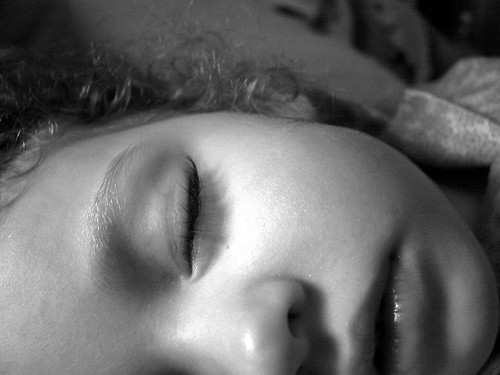
1. **The Falling Sensation**: Have you ever been jolted awake from a deep sleep, feeling as if you’ve just plummeted from an unimaginable height? This strange occurrence, commonly referred to as a hypnic jerk, happens during the delicate transition from wakefulness to slumber. When your body begins to relax and your mind starts to drift off, it might misinterpret this relaxation as a signal that you’re actually falling, prompting that instinctive reaction to grasp onto something and resulting in that heart-racing sensation that catches many of us off guard.

2. **Déjà Vu**: Have you ever walked into a room and felt an unsettling familiarity, as if you’ve stepped back in time? Déjà vu, which translates to ‘already seen’ in French, is a curious phenomenon that can evoke both excitement and confusion. This mind-boggling experience occurs when your brain identifies a situation that feels familiar, even if you’ve never lived it before. Scholars often attribute this mental glitch to the brain’s intricate memory processing functions, igniting discussions among neurologists about its true nature. Whether it’s a glitch in the matrix or simply your brain’s idiosyncratic wiring, déjà vu offers a captivating peek into the workings of our cognitive mechanisms.
3. **Phantom Noises**: Lying in bed, you might hear odd sounds, like objects falling or footsteps above you. These phantom noises can send chills down your spine, especially in the quiet of the night. Often, these sounds are simply our brains misinterpreting normal auditory signals, or they may stem from external noises that our minds amplify while we attempt to drift off to sleep. While unsettling, these experiences remind us how our minds can play tricks on us, heightening our awareness during the stillness of the night.

3. **Echolalia**: Have you ever found yourself unconsciously repeating someone’s words, as if echoing their speech back to them? This behavior, known as echolalia, can spontaneously arise during conversations when the brain mimics what it hears. While this is a common occurrence among young children as they learn to articulate language, adults may also experience this reflexive behavior during moments of stress or fatigue. This quirky communication quirk can be both amusing and perplexing, shedding light on the intricate relationship between language and cognition in our everyday interactions.

4. **Dreams into Reality**: Some individuals claim to experience dreams that later unfold in their waking lives, blurring the lines between sleep and reality. This intriguing phenomenon invites contemplation about the relationship between our subconscious and conscious experiences. While some dismiss it as mere coincidence, others see it as a profound insight into our minds. The intertwining of dreams and reality can evoke an eerie sense of familiarity, adding to the allure of our nighttime visions. Have you ever awoken with the thought, ‘I’ve witnessed this before’? You might just be among those fortunate enough to navigate this uncanny realm where dreams and reality collide.

6. **Sleep Paralysis**: This eerily common phenomenon occurs when you find yourself unable to move or speak while falling asleep or waking up. It can often be accompanied by hallucinations, lending a nightmarish quality to the experience. Many people describe feeling a heavy weight on their chest or an ominous presence in the room. Sleep paralysis can be disconcerting, but understanding its root causes—such as disrupted sleep patterns or sleep deprivation—can help demystify this frightening occurrence.

7. **Hypnagogic Hallucinations**: As you drift off to sleep, you might experience vivid dreams or sensations that feel incredibly real—this is known as hypnagogic hallucinations. These can include auditory, visual, or tactile experiences that blur the line between wakefulness and sleep. Most often harmless, these hallucinations can be alarming and provoke a sense of fear, especially when you perceive them as real. They remind us how fluid the boundaries between our conscious and subconscious minds can be.

5. **The Out-of-Body Experience (OBE)**: Have you ever felt a sensation of floating above your own body, gazing down at yourself from a distance? This surreal experience, known as an out-of-body experience, can manifest under various conditions, including trauma or extreme relaxation. While some individuals attribute such occurrences to spiritual or metaphysical beliefs, scientists propose that they may stem from how our brains process sensory information and our spatial awareness. Reflecting on these experiences can spark profound existential questions about the nature of consciousness and our very existence.

9. **Somnambulism (Sleepwalking)**: Sleepwalking is a fascinating and bewildering phenomenon where individuals walk or perform other complex behaviors while still asleep. This occurs during the deeper stages of sleep, often leaving the sleepwalker with no recollection of their actions upon waking. While sleepwalking can be harmless, it can also lead to dangerous situations if not managed properly. Understanding the triggers for sleepwalking, such as stress or genetics, can help mitigate potential risks.

10. **Exploding Head Syndrome**: This peculiar phenomenon involves the sudden perception of an explosive sound or sensation while falling asleep or waking up. Contrary to what its name suggests, it is not dangerous, but it can be startling and cause significant distress. Often linked to anxiety and sleep deprivation, it highlights how our brains can generate sounds during transitions between sleep states. While not fully understood, acknowledging it as a benign occurrence can help ease anxiety surrounding it.

11. **Time Distortion**: Have you ever felt like time is moving slower or faster than usual? This curious phenomenon occurs during moments of high adrenaline or intense focus, where our perception of time seems to warp. This has been observed in various situations, such as during accidents or while engaged in deep work. Understanding the psychology behind time distortion can provide insights into how our brains perceive reality under pressure.

12. **The Tetris Effect**: After playing the game Tetris for an extended period, some players report seeing blocks falling in their dreams or when they close their eyes. This phenomenon, known as the Tetris Effect, serves as a testament to how immersive experiences can influence our subconscious mind. It demonstrates the brain’s ability to integrate repetitive stimuli into our cognitive processes, leaving lasting impressions that can even carry over into our dreams.

13. **The 3 a.m. Wake-Up Call**: Many people wake up at approximately 3 a.m., often feeling a sense of unease or anxiety. Commonly referred to as the witching hour, this time can be associated with heightened emotional responses or vivid dreams. While there’s no scientific explanation for this occurrence, some theories suggest it may relate to our body’s circadian rhythms or psychological factors, reminding us how connected our emotional state is to our sleep patterns.

6. **Average Heart Rates While Sleeping**: During slumber, it’s typical for a person’s heart rate to decrease below the standard resting heart rate range. An average sleeping heart rate for adults falls between 40 to 50 beats per minute, although this can vary widely based on numerous factors, including age and overall health.

7. **Sleep Apnea**: Sleep apnea is a significant sleep disorder marked by recurrent interruptions in breathing throughout the night. Individuals who snore loudly or feel persistently fatigued, even after a full night’s sleep, may be susceptible to this condition. Recognizing the signs is essential, as untreated sleep apnea can lead to serious health risks. If you suspect you might have sleep apnea, consulting a healthcare professional for evaluation and potential treatment is crucial.
Related posts:
THE WEIRD ‘N WACKY WORLD OF WIKIPEDIA
These 21 Wikipedia Pages Are So Creepy, You’ll Need To Prove You’re An Adult To Visit Them






